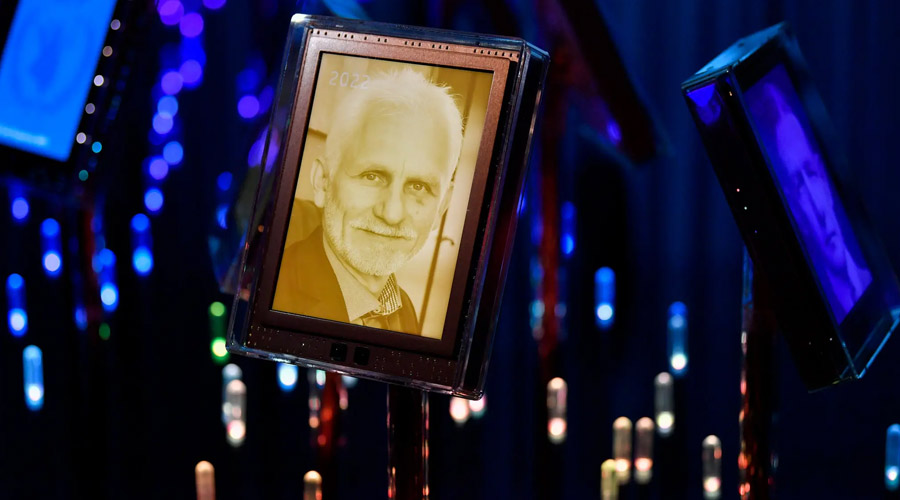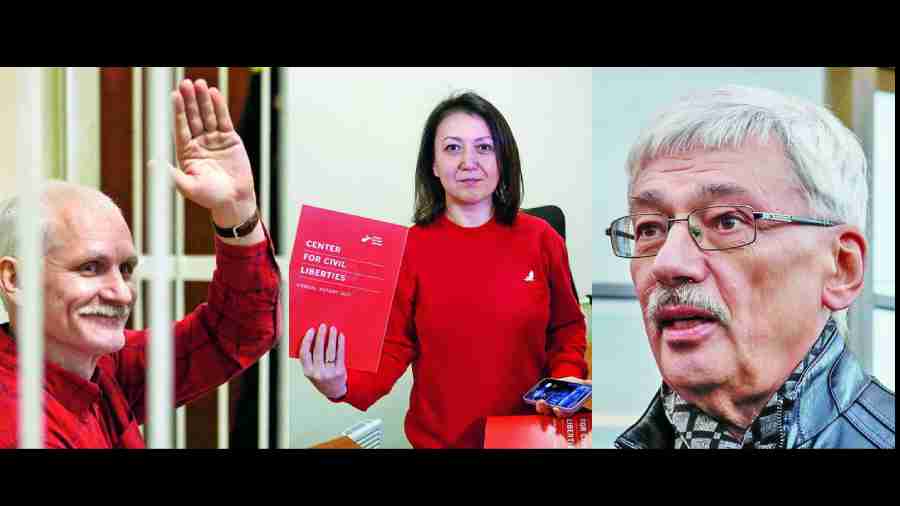The Nobel Peace Prize was awarded Friday to human rights advocates in Russia, Ukraine and Belarus whose campaigns for democracy, civil liberties and accountability for crimes of the past represent a sharp challenge to the aggression and repression unleashed by President Vladimir Putin of Russia.
The Norwegian Nobel Committee awarded the annual prize to Memorial, the Russian organization shuttered by the Kremlin last year that has documented human rights abuses past and present; to the Center for Civil Liberties, a Ukrainian pro-democracy group; and to Ales Bialiatski, an imprisoned human rights defender in Belarus.
That the prize went to representatives of all three countries highlighted the long shadow of their shared Soviet past — one that Putin and his Belarusian ally, President Alexander Lukashenko, are striving to revive while Ukrainians die fighting a Russian invasion that is now in its eighth month.
To some Ukrainians, the Nobel committee’s decision to award the prize to people from all three countries sent the wrong message by reminding the world of that shared past.
Others saw the prize as a message of defiance across borders and a recognition of the individuals across Eastern Europe who are fighting an authoritarianism that has bred war.
“We have a mutual enemy right now,” Alexander Cherkasov, chair of the Memorial Human Rights Center before it was shut down, said in a phone interview. “If you will, it is war; regimes that have become sources of war; and regimes that have become sources of repression.”
Memorial, the best known internationally of the three laureates, emerged as Russia’s historical conscience with the fall of the Soviet Union, documenting the crimes of Josef Stalin’s secret police and of the KGB that many in the country’s elite tried to continue to cover up.
Amid Putin’s increasing repression, Memorial also came to focus on present-day abuses; in 2009, one of its researchers, Natalya Estemirova, was killed while investigating kidnappings and killings in the southern Russian republic of Chechnya.
Last year, the Russian government shut down Memorial, with prosecutors claiming that it “justifies terrorist activities.” On Friday, several Memorial staff members spent the hours after the prize announcement in a Moscow courtroom — where the judge, as expected, ruled to approve the seizure of the organization’s office space.
“The Memorial building goes to the government but, fortunately, the Nobel medal is not sent by mail,” the organization said in a statement afterward.
The New York Times News Service












